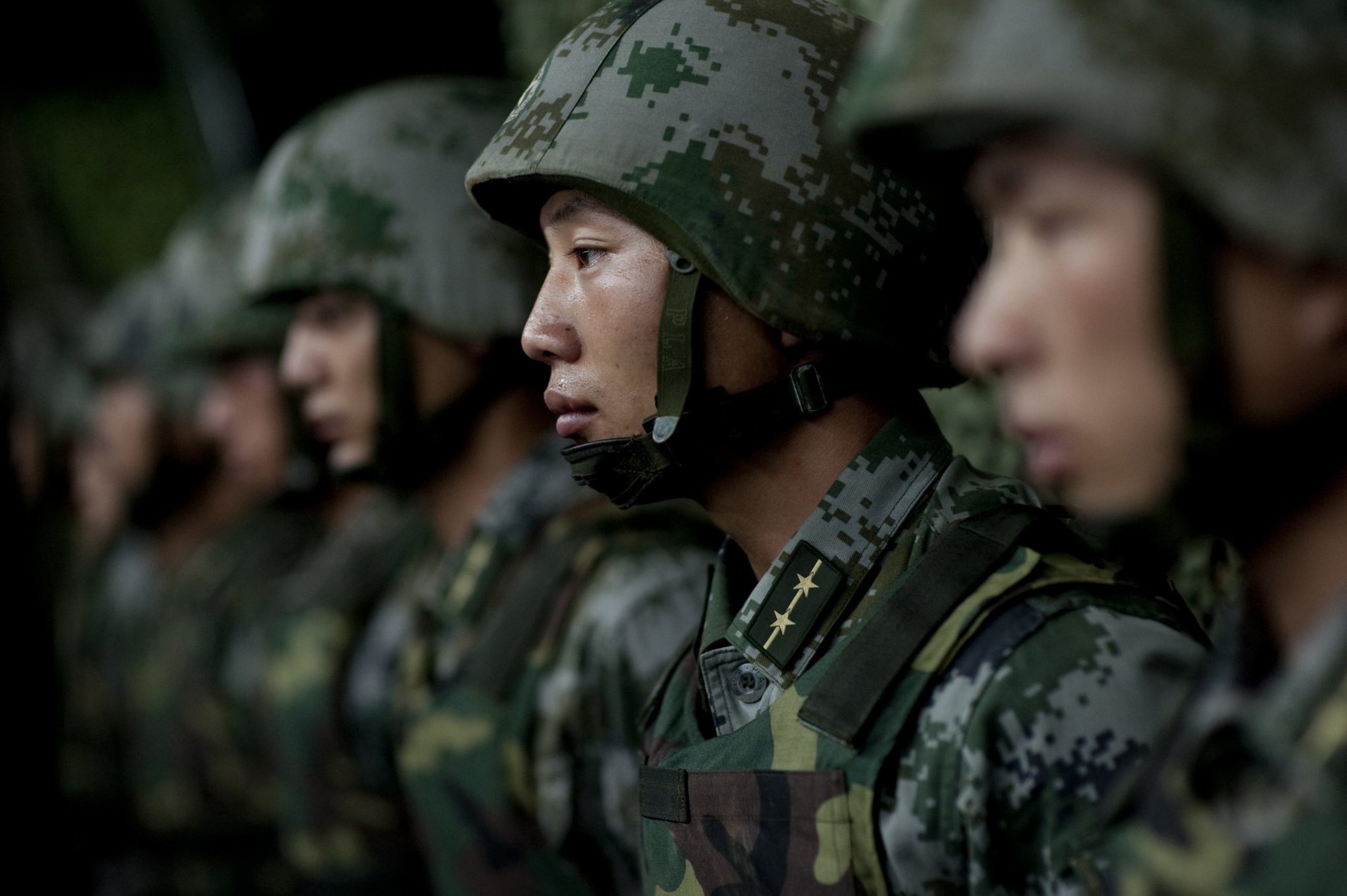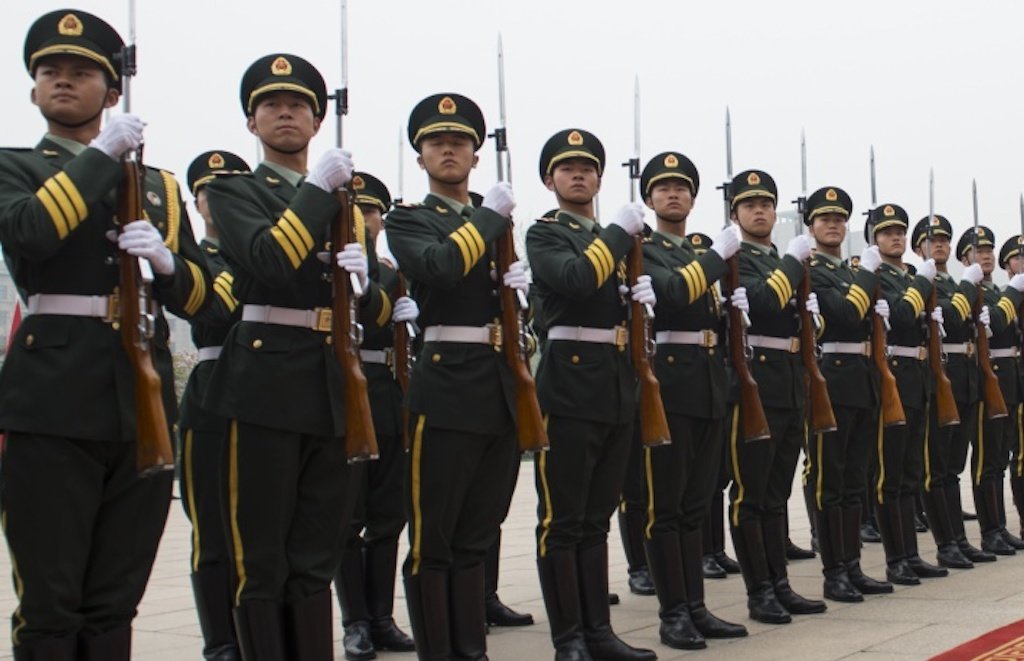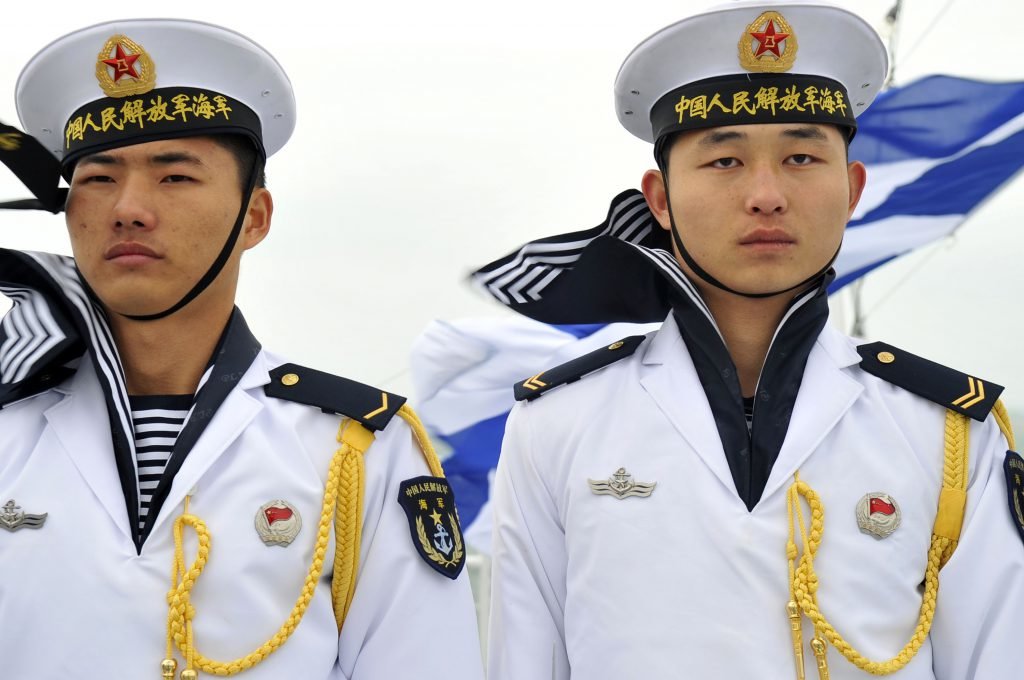China Experimenting on Humans to Engineer ‘Biologically Enhanced’ Soldiers, Top US Intel Official Says

Soldiers of the Chinese People’s Liberation Army 1st Amphibious Mechanized Infantry Division prepare to provide Chairman of the Joint Chiefs of Staff Adm. Mike Mullen with a demonstration of their capablities during a visit to the unit in China on July 12, 2011. Mullen is on a three-day trip to the country meeting with counterparts and Chinese leaders. DoD photo by Mass Communication Specialist 1st Class Chad J. McNeeley/Released.
The notion of super-soldiers enhanced with biotechnology like the fictional Captain America has long gripped the imaginations of comic book readers and moviegoers. However, as Oscar Wilde once wrote: “Life imitates art.” And a “Captain China” could soon be a reality, according to America’s top intelligence official.
In a Friday op-ed for The Wall Street Journal, US Director of National Intelligence John Ratcliffe enumerated the reasons why China is America’s top security threat. While Ratcliffe’s piece excoriated Beijing’s malign behavior on multiple fronts, one particular assertion stood out, underscoring the alleged moral vacuity of China’s quest to gain military advantage over its American adversary.
“U.S. intelligence shows that China has even conducted human testing on members of the People’s Liberation Army in hope of developing soldiers with biologically enhanced capabilities,” Ratcliffe wrote, adding: “There are no ethical boundaries to Beijing’s pursuit of power.”
Overall, Chinese military leaders say their country’s armed forces are in the midst of a “revolution” in military affairs. That so-called revolution includes the advent of new technologies like artificial intelligence and hypersonic weapons, as well as the expansion of China’s nuclear arsenal and advances in spaceflight.
Biological research has also become a priority for China’s military. Notably, the term “biological dominance” has “become more prevalent in [Chinese People’s Liberation Army] writings on future warfare,” wrote the authors of an October 2019 paper for the Jamestown Foundation, a US national security think tank.

“Chinese military scientists and strategists have consistently emphasized that biotechnology could become a ‘new strategic commanding heights of the future Revolution in Military Affairs,’” wrote the report’s authors, Elsa Kania, an expert on Chinese defense technology at the Center for a New American Security, and Wilson VornDick, a consultant on China matters and former Navy officer.
The authors added: “Certainly, the [People’s Republic of China] is not alone in recognizing the potential of biotechnology on the future battlefield, but the ways in which Chinese research is seeking to integrate developments among industry, academic institutions, and military-oriented programs — including through research collaborations and the procurement of dual-purpose commercial technologies — may prove striking.”
Researchers from the Chinese military’s Academy of Military Medical Sciences have been engaged in a commercial venture to develop brain-computer interfaces that can be paired with artificial intelligence technology — presumably to give Chinese soldiers a battlefield edge. Chinese scientists have also made recent breakthroughs in a gene editing technique called CRISPR-Cas.
“While the potential leveraging of CRISPR to increase human capabilities on the future battlefield remains only a hypothetical possibility at the present, there are indications that Chinese military researchers are starting to explore its potential,” Kania and VornDick wrote in their 2019 report.
Based on a survey of recent scientific reports, that “hypothetical” capability may not be so far from reality.
Chinese scientist He Jiankui, who was based at the Southern University of Science and Technology in Shenzhen, used the CRISPR technology to genetically edit embryos in late 2018, thereby creating the world’s first genetically modified humans — twin girls, Lulu and Nana.

He’s genetic experiments, which sparked ethical backlash both from within China and across the world, were ostensibly aimed at creating gene-edited babies that would be born with immunity to HIV, smallpox, and cholera. However, according to the MIT Technology Review, the same genes that He manipulated to render the babies immune to those diseases may have also enhanced their intelligence.
“News of the first gene-edited babies also inflamed speculation about whether CRISPR technology could one day be used to create super-intelligent humans, perhaps as part of a biotechnology race between the US and China,” Antonio Regalado, the MIT Technology Review‘s senior editor for biomedicine, reported in February 2019.
A Chinese court later found He guilty of conducting “illegal medical practices” and sentenced him to three years in prison.
The People’s Liberation Army’s Academy of Military Medical Sciences has reportedly sanctioned research on how the CRISPR gene editing technology could be used to enhance soldiers’ combat performance. A 2016 doctoral dissertation published by one of the Chinese academy’s researchers cited the “great potential” of the CRISPR gene editing technique as a “military deterrence technology.”
Chinese researchers have also reportedly used the CRISPR gene editing technique to biologically engineer “extra-muscular” dogs for police use, the MIT Technology Review reported in 2015.

“While there are only rumors of Chinese genetic manipulation of recruits to create ‘super-soldiers,’ China’s known behavior with regards to genetic manipulation of embryos that are brought to term, and sending people abroad who are test cases of experimental COVID vaccines, suggests that China adheres to a very different set of ethical standards when it comes to medical and genetic experimentation,” Dean Cheng, senior research fellow at The Heritage Foundation’s Asian Studies Center, told Coffee or Die Magazine.
Based on the available open-source intelligence to date, it seems unlikely that any active-duty Chinese troops have been enhanced due to genetic engineering technology. Yet, the apparent interest in such technology among Chinese military leaders has sounded alarm bells in the West.
“Although the use of CRISPR to edit genes remains novel and nascent, these tools and techniques are rapidly advancing, and what is within the realm of the possible for military applications may continue to shift as well,” Kania and VornDick wrote in an August 2019 report for Defense One. “In the process, the lack of transparency and uncertainty of ethical considerations in China’s research initiatives raise the risks of technological surprise.”
Moreover, China’s interest in exploiting genetics for its national advantage is not limited to warfare. In the sports world, as well, China has been accused of some ethically questionable practices. In his 2005 book, Operation Yao Ming, former Newsweek journalist Brook Larmer claimed that China’s most famous basketball player — the 7-foot-6-inch Yao Ming — was bred for his sport and underwent years of specialized physical therapy procedures meant to enhance his height.

Yao’s father — 6-foot-7-inch Yao Zhiyuan — and his mother — 6-foot-3-inch Fang Fengdi — were both professional basketball players. Yao’s grandfather was one of Shanghai’s tallest men.
According to Larmer, Chinese officials encouraged, but did not mandate, Yao’s parents to marry and have a child.
“It wasn’t a national breeding program, it was a desire among Shanghai officials for them to get together,” Larmer wrote. “But when Yao was born, everybody in the sports community in Shanghai and nationally knew he was something special.”
Guided by China’s Communist Party, Yao’s upbringing was part of a program meant to produce genetically superior athletes that dates back to the Cold War rule of Mao Zedong, former chairman of the People’s Republic of China.
“It’s no accident that there have been generations of players who have continued to get taller,” Larmer wrote in Operation Yao Ming. “One of the first NBA scouts was blown away when he went to northern China and saw more than 20 seven-footers.”
Writing in The Wall Street Journal on Friday, Ratcliffe announced that the share of the $85 billion annual US intelligence budget dedicated to China will be increased. In a separate statement, the Office of the Director of National Intelligence said intelligence spending on China was set to increase by some 20% in the next fiscal year.
“[T]he People’s Republic of China poses the greatest threat to America today, and the greatest threat to democracy and freedom world-wide since World War II,” Ratcliffe wrote.

BRCC and Bad Moon Print Press team up for an exclusive, limited-edition T-shirt design!
BRCC partners with Team Room Design for an exclusive T-shirt release!
Thirty Seconds Out has partnered with BRCC for an exclusive shirt design invoking the God of Winter.
Lucas O'Hara of Grizzly Forge has teamed up with BRCC for a badass, exclusive Shirt Club T-shirt design featuring his most popular knife and tiomahawk.
Coffee or Die sits down with one of the graphic designers behind Black Rifle Coffee's signature look and vibe.
Biden will award the Medal of Honor to a Vietnam War Army helicopter pilot who risked his life to save a reconnaissance team from almost certain death.
Ever wonder how much Jack Mandaville would f*ck sh*t up if he went back in time? The American Revolution didn't even see him coming.
A nearly 200-year-old West Point time capsule that at first appeared to yield little more than dust contains hidden treasure, the US Military Academy said.












